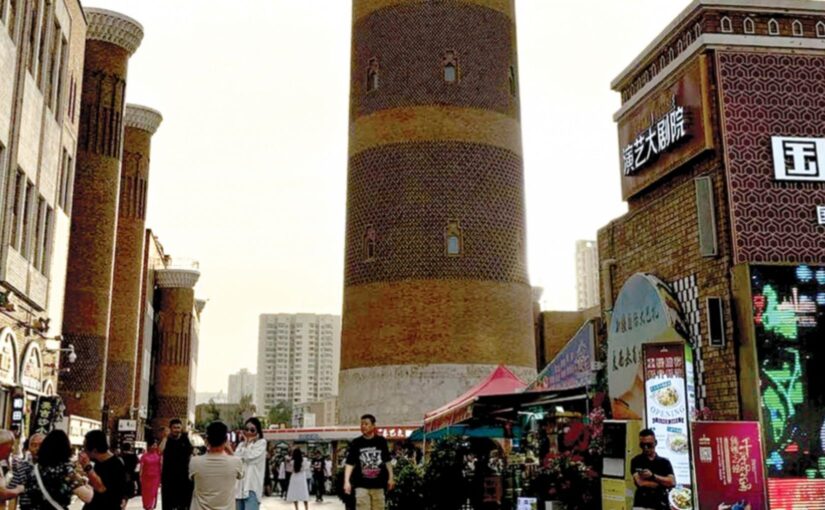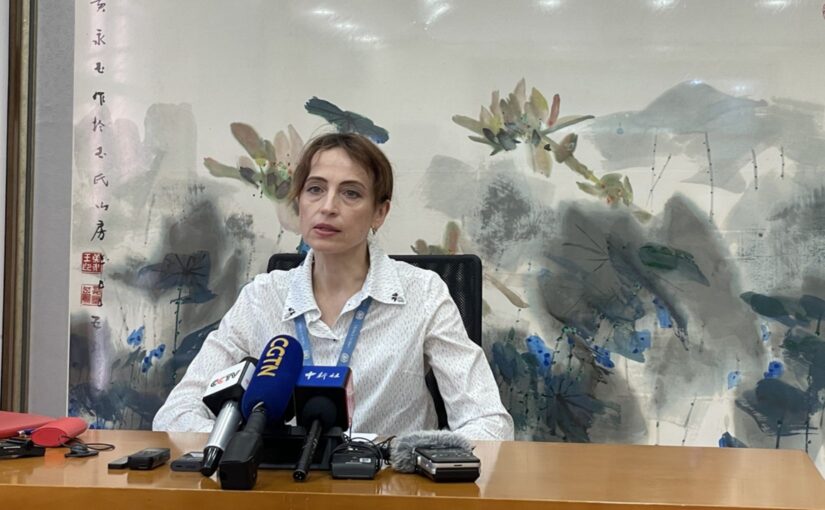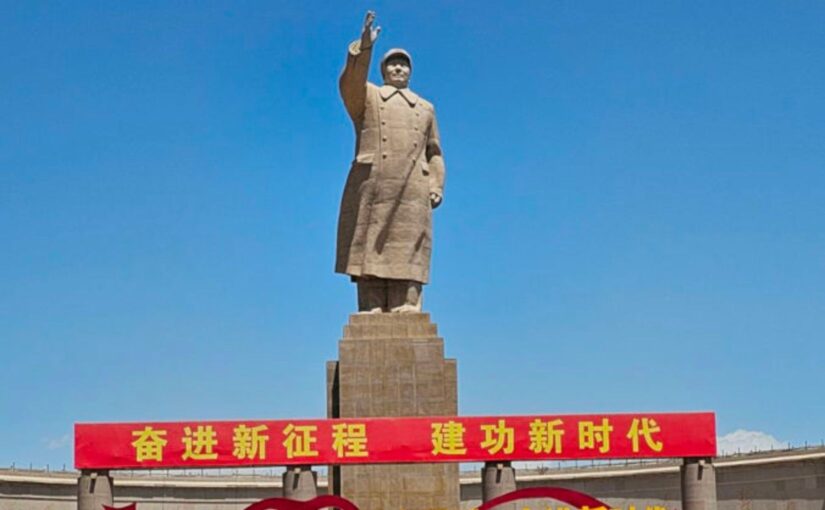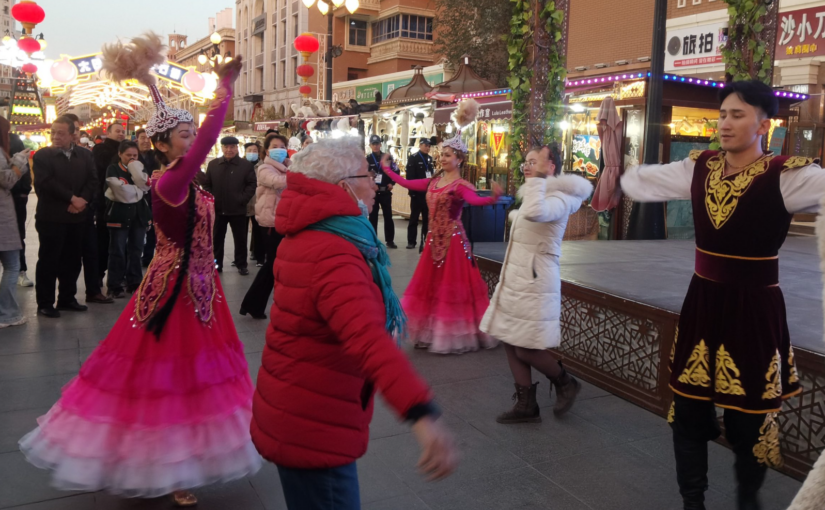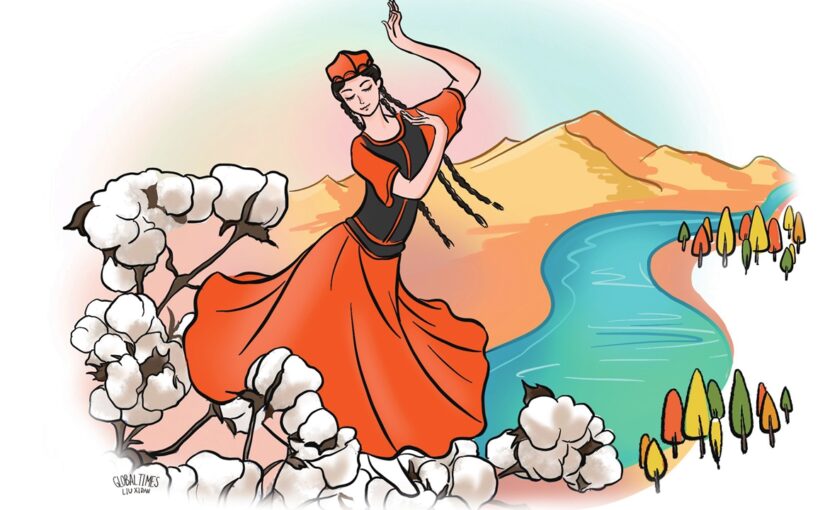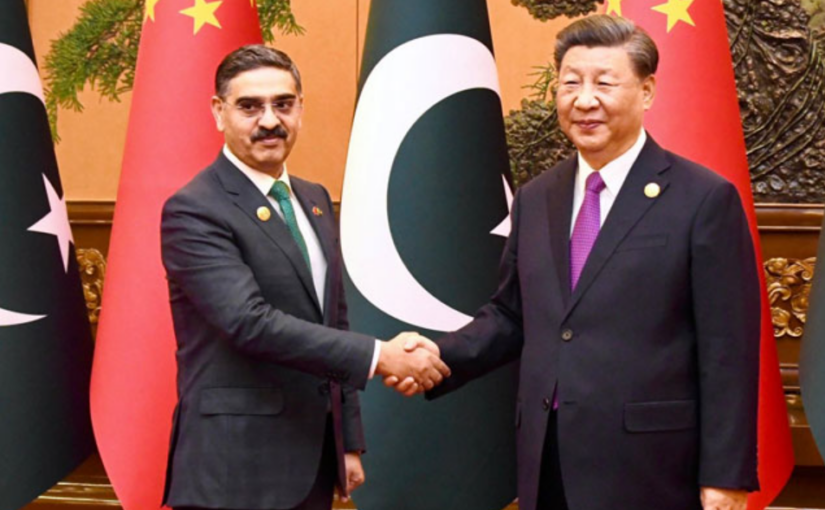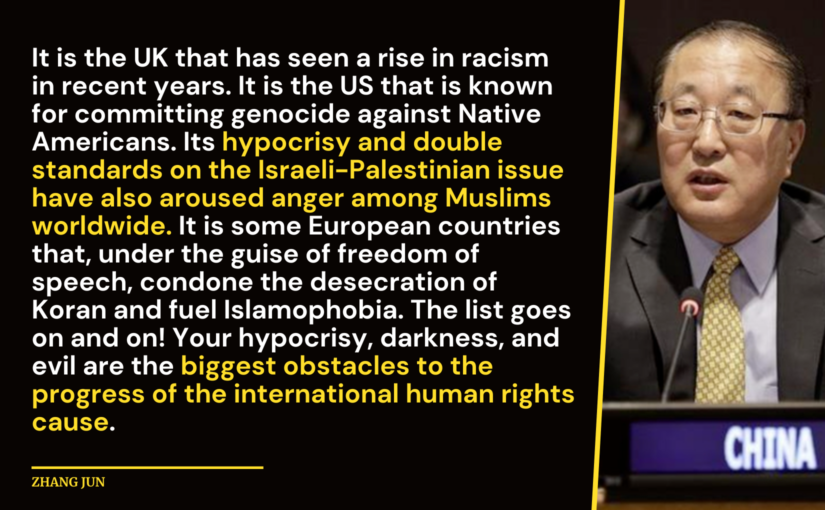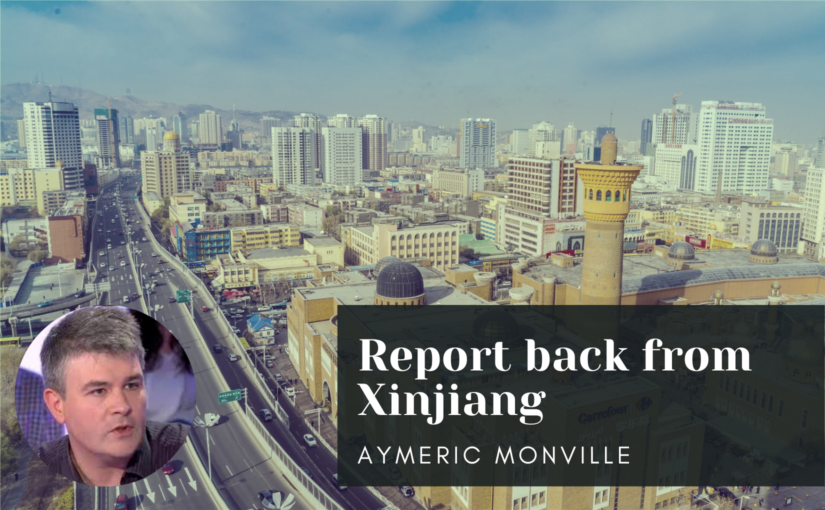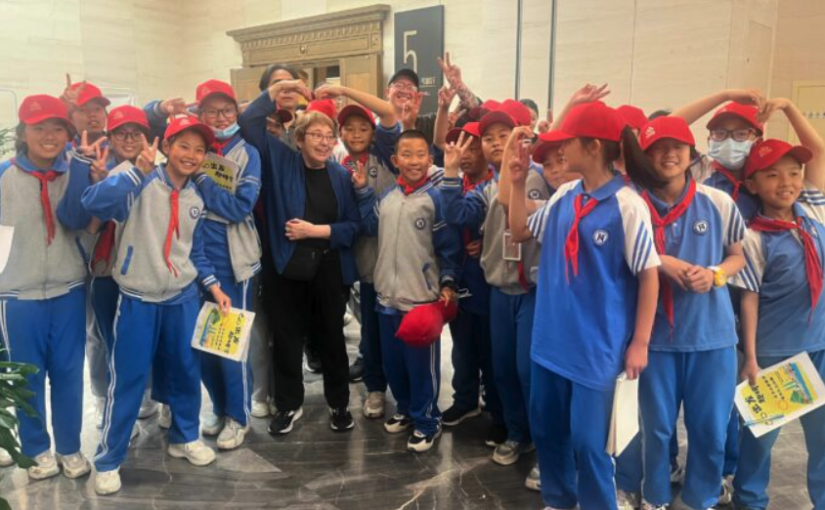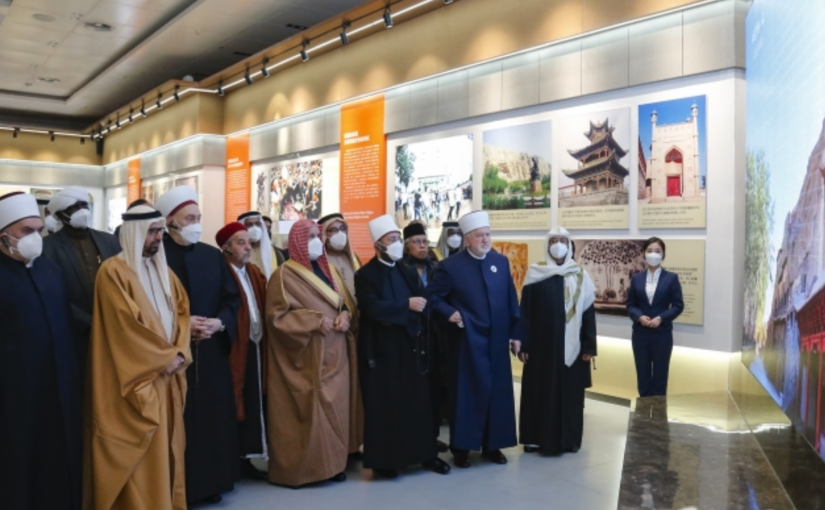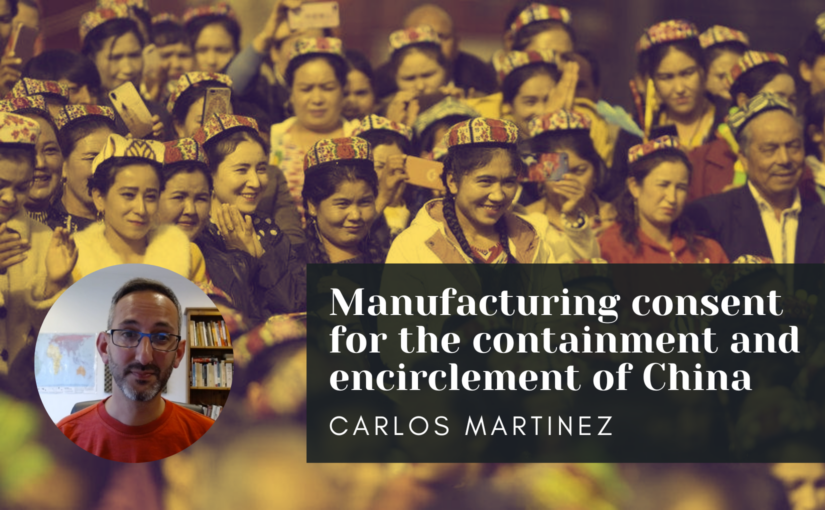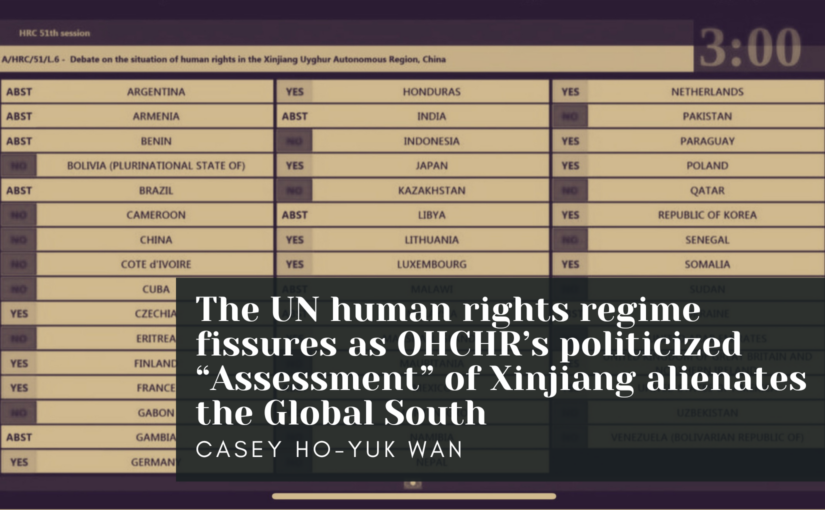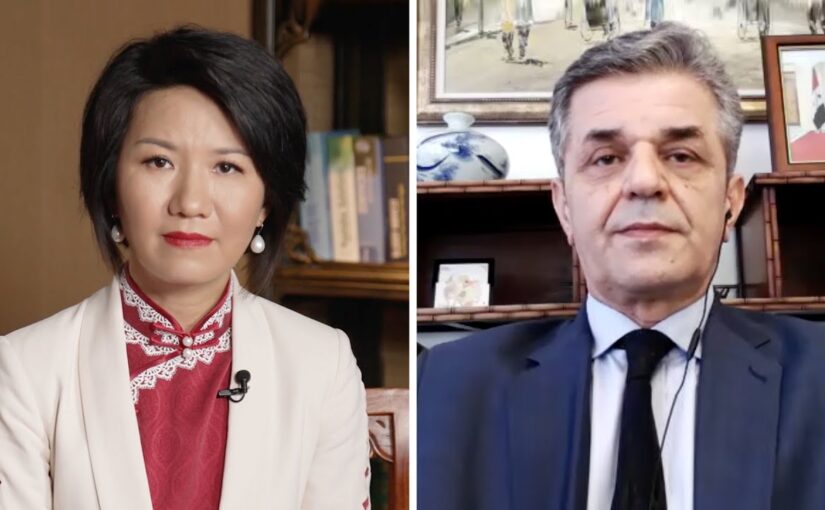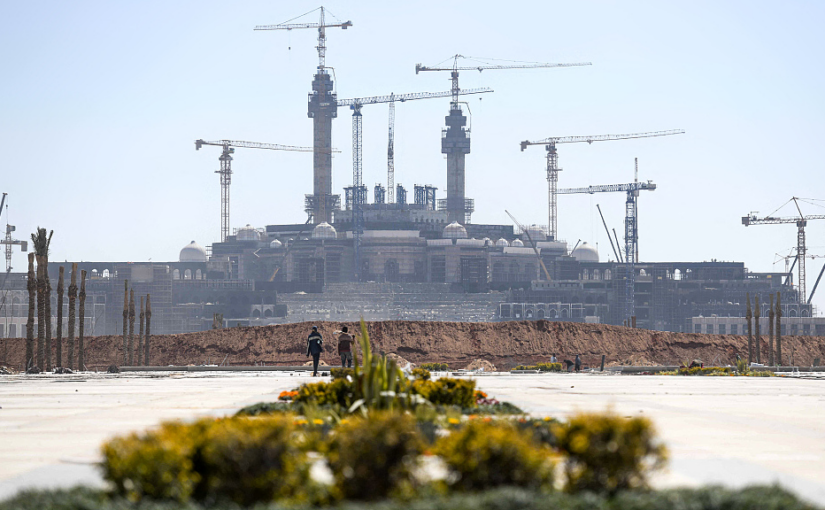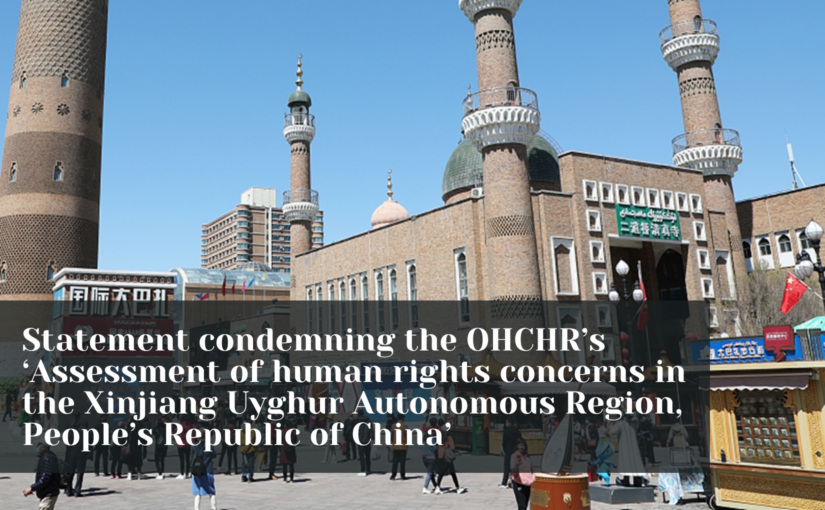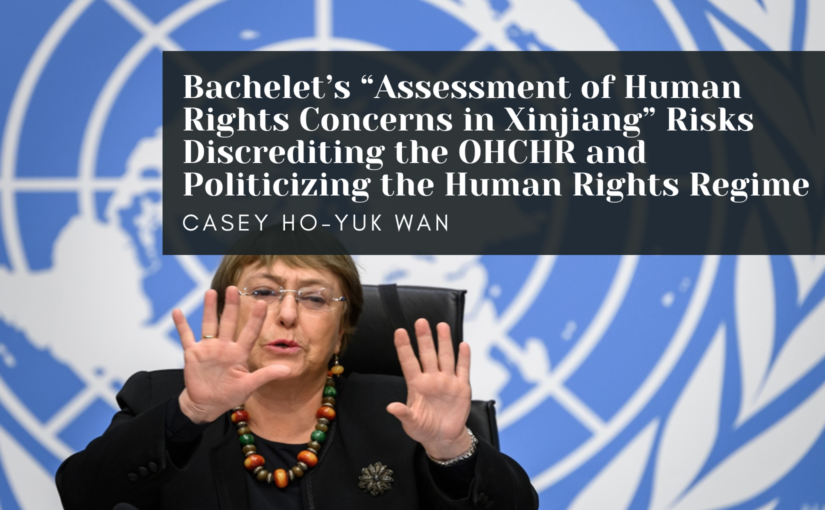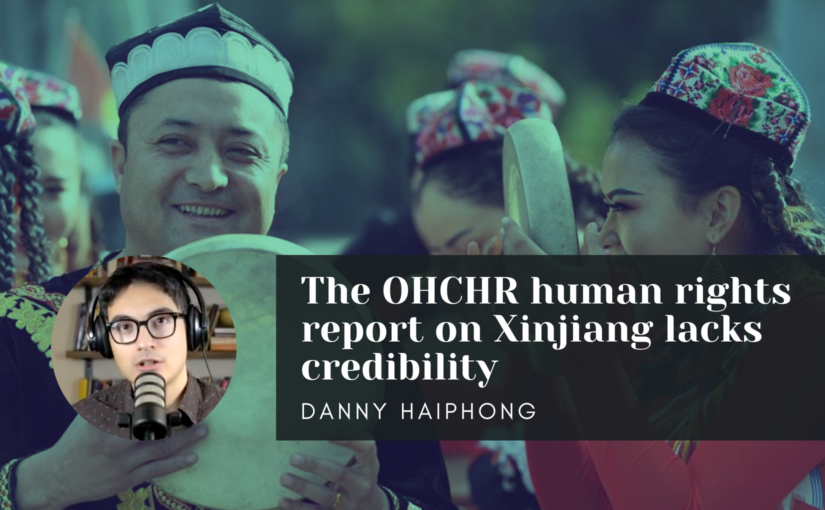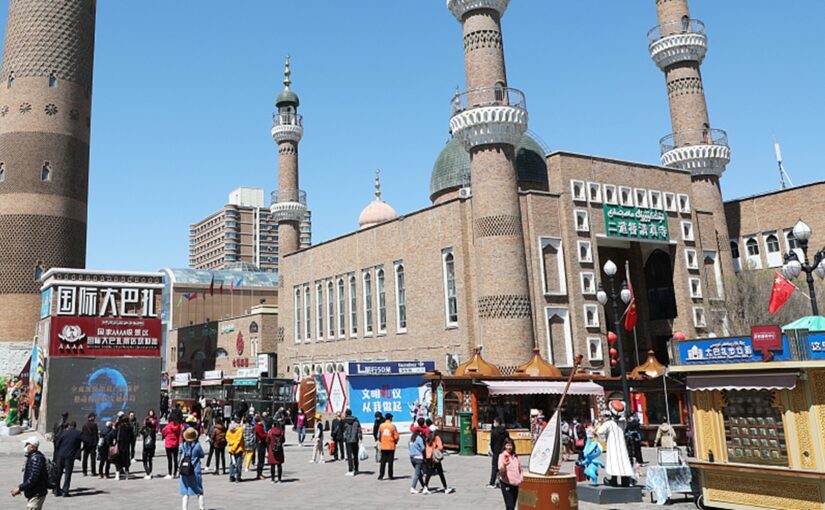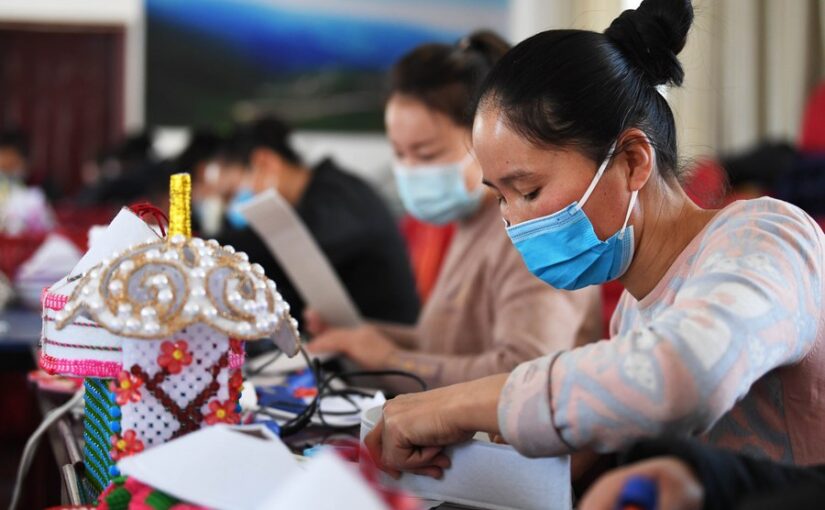In this report back for the Morning Star, Roger McKenzie shares his reflections on a recent visit to Xinjiang, China, which took in five cities and towns in ten days.
What the delegation witnessed belies the Western media narrative about religious and cultural oppression in Xinjiang. Roger writes: “I lost count of the number of mosques that I saw during my recent trip. I visited a thriving Islamic Centre in the city of Urumqi — which has received millions in funding from the Chinese government for its development to teach its around 1,000 students… Celebrations of the Islamic culture were everywhere for anyone to see.”
Having visited multiple religious sites and spoken with religious figures and political leaders, as well as ordinary people, Roger comments drily: “I can honestly say that for a country that supposedly routinely oppresses ethnic minorities, China seems to spend an inordinate amount of time celebrating them”.
Given the yawning disparity between Western media portrayal of Xinjiang and the reality on the ground, Roger asks the key question: why is this propaganda war being waged? “The geographical position of the region provides the answer. As the centre of the Silk Road renaissance, the region will be the focal point of Chinese trade and its economic heartbeat.” The US, hell-bent on maintaining full-spectrum dominance, “will use any means necessary to maintain the pre-eminence of US capital”.
Thus slanders against China aim at damaging its economy, isolating it internationally, preventing the emergence of solidarity between China and the Western progressive movement, and fomenting discontent within China itself.
This article is the first in a series of three.
The Chinese autonomous region of Xinjiang is at the geographical centre of Eurasia.
The region borders eight other countries which makes it a vital part of Chinese plans for the greater integration of Eurasia and the westward opening up of this nation of 1.4 billion people.
The Comprehensive Bonded Zone in the city of Kashi is central to co-ordinating the booming trade links that China has established with its immediate neighbours.
Xinjiang, one of the largest regions in China, is a gateway to Russia, India, Pakistan, Mongolia, Kyrgyzstan, Tajikistan, Kazakhstan and Afghanistan.
It occupies around 643,000 square miles of China — a space larger than six Britains.
Its sparse population of approximately 25 million is mainly Muslim and made up of around 65 different ethnic groups including Chinese Han, Uighurs, Kazakhs and Hui, among others.
I lost count of the number of mosques that I saw during my recent trip.
I visited a thriving Islamic Centre in the city of Urumqi — which has received millions in funding from the Chinese government for its development to teach its around 1,000 students.
I had the honour of sitting in the mosque’s main hall attached to the centre alongside the imam and hearing him talk about the support the centre had received from the government.
I also visited the magnificent and extremely busy Id Kah Mosque in the city of Kashi.
Both times the imams took the time from their busy schedules to speak about how grateful they and worshippers at the mosque are for the support provided by the government.
They told me about how the right to worship any religion is considered a private matter in China and protected in law.
That’s why it provides funds to a wide range of religious bodies representing Muslims, Buddhists and Christians among others.
None of this is recognised in the West. Instead tall tales are told about supposed widespread religious persecution.
In particular Western politicians and their stenographers in the corporate media continue to spin untruths about the treatment of religious minorities.
To be crystal clear: at no time did I witness any attempt to block anyone from being able to worship according to the Islamic faith or, for that matter, any other religion.
I heard no criticism of the government over religious persecution from senior religious figures or anyone else I met during my visit.
I was never stopped from speaking with anyone in any of the large crowds of people that I found myself in across the region.
Having made the effort to actually visit five cities in 10 days in the region rather than pontificate from thousands of miles away, I can honestly say that for a country that supposedly routinely oppresses ethnic minorities China seems to spend an inordinate amount of time celebrating them.
By that, I don’t mean the half-arsed patronising so-called celebration of diversity that now appears customary across Britain.
Leading figures in Britain trip over themselves to take a knee and say how much black lives matter to them but continue to do nothing about racism in their organisations.
It doesn’t look to me like a Black History Month-type gig where a big show is made for a short tokenistic period and then ignored for the rest of the time.
Talking up the richness of the region’s cultural diversity wasn’t just an isolated thing in Xinjiang — it was everywhere. Celebrations of the Islamic culture were everywhere for anyone to see.
I can already hear some saying that either I wasn’t looking hard enough or I was having the wool pulled over my eyes. I did look hard and I don’t believe an elaborate hoax was being played on me.
I spoke with lots of people in private with no restrictions placed on me whatsoever. In fact, my dreadlocks, and I dare say, the colour of my skin, meant I was a target of curiosity, especially among the young, many of who wanted to come and chat and have a photo taken with me.
That was frankly the most uncomfortable thing about the trip!
What I saw was lots of people going about their business in much the same way as I have seen people trying to do in many parts of the world.
I met many Communist Party officials who were questioned over the allegations made against them and their country. All of them said the only way to counter the propaganda war being waged against them was for people to come and see for themselves.
They told me how hard they were working to open up the region to more tourism so that people could experience this beautiful area but also so more people could bear witness to the truth about them.
So why is this propaganda war being waged against China in general and in particular against Xinjiang?
The geographical position of the region provides the answer. As the centre of the Silk Road renaissance, the region will be the focal point of Chinese trade and its economic heartbeat.
It means the continuing economic growth of China is disproportionately linked to Xinjiang.
Its trade routes through its eight neighbours to its wider partners will be critical to sell Chinese-made goods as well as to buy the resources needed to continue to power the country’s economy.
The US is the world’s leading economy and wants to keep it that way. Its doctrine of Full Spectrum Dominance asserts that it will use any means necessary to maintain the pre-eminence of US capital.
I think we can take this to mean that the US will not hesitate to spread misinformation about China. After all, it’s not as if the US does not have form for this type of behaviour.
They have been doing it for years, particularly across Africa and Central America where they buy organisations to ferment internal dissent against governments deemed not to be compliant.
Sprinkled with an always unhealthy dose of sinophobia the move by the US to undermine the reputation of China has largely economic foundations and false allegations of mistreatment against ethnic minorities — particularly the Uighurs — are completely without foundation.
On the contrary, there seems to me to be far more evidence of the Chinese at a national and regional level actively celebrating cultural diversity as well as striving to put in place the economic prosperity that looks as though it is undermining attempts by terrorist groups — likely funded by the West — to sow discontent in Xinjiang.
I will talk about this and the allegations of forced labour in some detail in the second part of this three series about my visit to China. In the meantime, to anyone reading this article in disbelief and who believes that either I am lying or have been the victim of what would be a truly elaborate hoax my suggestion is: go and see for yourself.
It’s a long way away but I honestly believe you will be surprised by the wonderful vibrant people and cities that will greet you.
